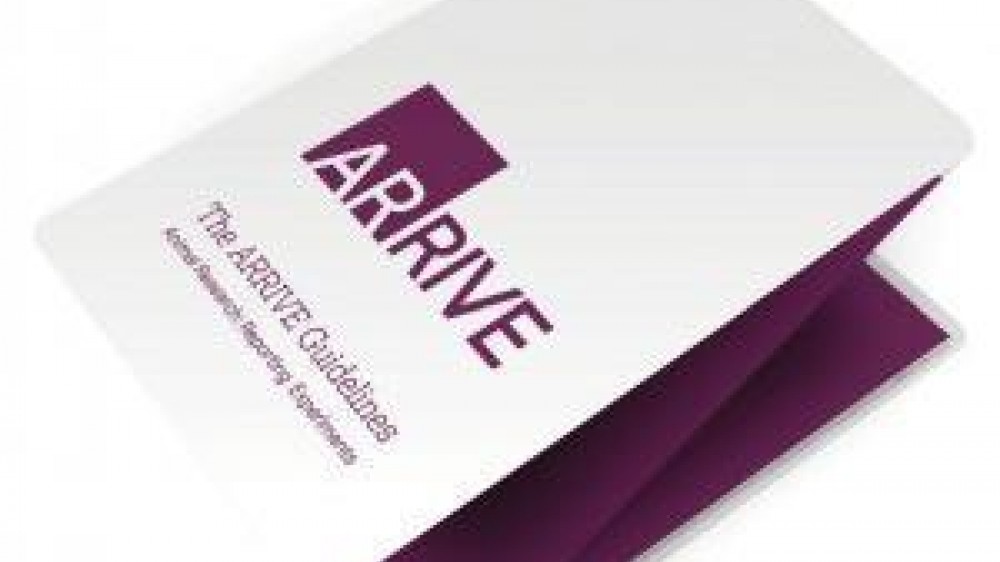Study of the quality of animal research in Switzerland – implications for the ARRIVE guidelines

The reproducibility of preclinical research has been in the limelight over the last few years, with many major scientific stakeholders concerned about the quality of the design and reporting of animal experiments.
We published the ARRIVE guidelines in 2010 to help researchers report their in vivo science transparently and comprehensively, encouraging reproducibility. The guidelines consist of a 20 items checklist, covering the internal validity of the study described, specifics allowing the experiments to be repeated by other researchers, and information about the context and scientific relevance of the research. Over 1,000 scientific journals, including high impact publications, have now endorsed the ARRIVE guidelines and included them into their instructions to authors. A key issue however is what impact the guidelines are having on the quality of publications: a question that the NC3Rs and others have been exploring.
Analysis of the quality of animal research in Switzerland
This week, researchers at the University of Bern, Switzerland, published two studies in PLoS ONE1 and PLoS Biology2 on scientific rigour in animal experimentation in Switzerland with the ARRIVE guidelines featuring throughout the publications. In the first study, Professor Hanno Würbel and his team screened all of the applications for animal research that had been approved by the Swiss Federal Food Safety and Veterinary Office (FSVO) in 2008, 2010 and 2012 (1,277 in total), and also a random sample of 50 papers that resulted from these applications. They looked for indicators that the authors had taken action to reduce risks of bias in their research using measures such as randomisation, blinding, and sample size calculations - prerequisites for high standards of experimental design. In their second study, the team sent a questionnaire to all animal researchers registered with the FSVO and asked about the measures that they took to reduce any risk of bias when conducting their research, and the measures that they reported in their publications.
What does the work say about the ARRIVE guidelines?
The team found that researchers who were aware of the ARRIVE guidelines took more steps to reduce bias in their experiments, and reported more measures to reduce the risk of subjective bias in their publications, compared to researchers who unaware of them. Although this shows a correlation and not a causal link, the analysis provides empirical evidence that researchers who know about the ARRIVE guidelines do more robust research.
However the picture was not entirely rosy. The ARRIVE guidelines were known by less than half of the participants (43.7%); and among those whose latest paper was published in a journal that had endorsed the ARRIVE guidelines, more than half (51%) had never heard of the guidelines. Clearly more needs to be done by journals to ensure that the guidelines are put into practice and we are already working closely with the science community to support this. This includes a survey to better understand the challenges faced by different stakeholders – researchers, reviewers and editors – in implementing the guidelines, as well as co-funding a randomised controlled trial to gather evidence on the impact of the ARRIVE guidelines. The IICARus trial, led by the CAMARADES group from Edinburgh, will tell us if strict enforcement of the ARRIVE guidelines improves the reporting of animal research in published papers, and which items on the ARRIVE guidelines are most frequently reported or missed in manuscripts. This will inform our future strategy to improve the design and reporting of animal experiments.
References
-
Reichlin T.S, Vogt L, Würbel H (2016). The Researchers’ View of Scientific Rigor—Survey on the Conduct and Reporting of In Vivo Research. PLos ONE. doi: 10.1371/0165999
-
Vogt L, Reichlin T.S, Nathues C, Würbel H (2016). Authorization of Animal Experiments Is Based on Confidence Rather than Evidence of Scientific Rigor. PLoS Biology. doi: 10.1371/2000598
